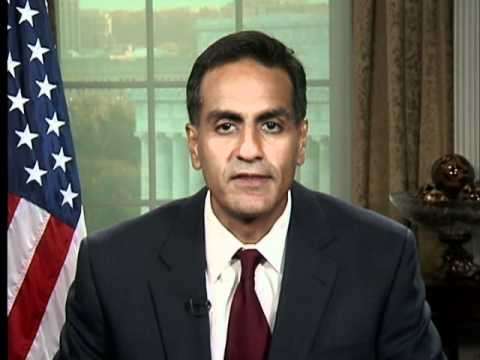 The US envoy to India Richard Verma voiced “concern” over reports about “challenges faced by NGOs operating in India”, as the government has put the US-based Ford Foundation under the scanner.
The US envoy to India Richard Verma voiced “concern” over reports about “challenges faced by NGOs operating in India”, as the government has put the US-based Ford Foundation under the scanner.
Speaking at the Ananta Aspen Institute on the Foundations of the US-India Strategic-Plus Relationship, the ambassador said: “I read with some concern the recent press reports on challenges faced by NGOs operating in India.”
“Because a vibrant civil society is so important to both of our democratic traditions, I do worry about the potentially chilling effects of these regulatory steps focused on NGOs,” he added.
Verma said that during his tenure he hoped to find “many areas of agreement and forward progress” with his official and unofficial friends, “but I also know there will be times when we disagree, and I look forward to those conversations too”.
He said, “It is a suggestion that our democratic traditions are strengthened when we use discussion and debate to improve.”
“Therefore, we can build resilience in our bilateral relationship by having frank discussions on all matters of shared concern, including the importance of civil society and free expression to the promotion of a more peaceful, prosperous, and stable future.”
On Tuesday, the government said the Ford Foundation had funded some NGOs which are not registered under the provisions of the Foreign Contribution (Regulation) Act (FCRA), 2010, as well as the Sabrang Trust which is linked to activist Teesta Setalvad.
“There are inputs from security agencies that some amounts have been credited from Ford Foundation to some NGOs which are not registered under the provisions of FCRA, 2010,” Minister of State for Home Affairs Kiren Rijiju told the Lok Sabha.
“Hence, to keep a watch on such recipients, the credits from Ford Foundation have been put under prior permission category under FCRA, 2010,” he added.
Last month, the government put international donor Ford Foundation on the watchlist for funding organisations not registered under the FCRA.
Verma said that in the world of today “a great deal of the search for the refinements that can improve our governments is undertaken by civil society organisations”.
He said President Barack Obama had convened members of the international community on the margins of the UN General Assembly in 2013 to launch the Stand with Civil Society Agenda.
The objectives were “to improve the policy environment for civil society organisations in various countries around the world; coordinate diplomatic actions in response to restrictions on civil society; and to develop innovative mechanisms for providing civil society organisations with technical and financial support”.
Verma said the US and India are collaborating on a variety of healthcare issues.
He said epidemiologists from the US and Indian Centers for Disease Control are working together on the India Epidemic Intelligence Service Programme and may have found the source of the disease that was killing many children in Bihar’s Muzaffarpur district.
Health agencies of both sides were also collaborating to find a vaccine for rotavirus.
He said after Obama’s visit and that of several top officials, the two sides are engaging on more than 70 initiatives, “everything from space to vaccines”.
These include “launching a civil nuclear contact group that moved us past some of the obstacles that had stalled progress for years; restarting the trade policy forum to address intellectual property and food security issues; signing Memoranda of Cooperation on Smart Cities and Transportation; and hosting the bilateral India-U.S. Technology Summit”.